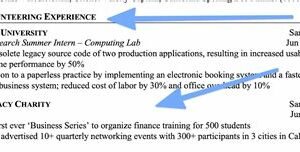Table of Contents
Volunteer job responsibilities involve contributing time and skills for the betterment of a cause or organization. These responsibilities may include assisting with events, fundraising efforts, administrative tasks, and providing support to beneficiaries. Volunteers play a crucial role in making a positive impact on communities and are expected to be reliable, compassionate, and dedicated to their assigned tasks. Explore various volunteer opportunities to find a role that aligns with your interests and values.
Volunteering is a noble act that not only benefits the community but also allows individuals to develop essential skills and make a meaningful impact. When considering taking on a volunteer role, it is crucial to understand the responsibilities that come with it. As a volunteer, one must be prepared to take on various tasks, demonstrate commitment, and possess a strong sense of responsibility. These responsibilities extend beyond just showing up and lending a helping hand; they require dedication and professionalism in order to effectively contribute to the cause at hand.
Introduction
Volunteering is a selfless act that involves giving your time, skills, and energy to help others or contribute to a cause. It is an opportunity to make a positive impact on society and gain personal satisfaction in return. However, being a volunteer also comes with certain responsibilities. In this article, we will explore the various job responsibilities that volunteers should adhere to while engaging in their chosen activities.
Understanding the Cause
Before embarking on any volunteer work, it is crucial to have a clear understanding of the cause you are supporting. Take the time to research and educate yourself about the organization, its mission, and the goals it aims to achieve. This knowledge will enable you to effectively contribute and make a meaningful difference.
Showing Commitment
Commitment is an essential attribute for any volunteer. Once you have made a commitment to support a cause, it is important to follow through and fulfill your obligations. This may involve dedicating a certain number of hours per week, attending meetings and events, or fulfilling specific tasks assigned to you.
Respecting Authority
As a volunteer, it is crucial to respect the authority and leadership within the organization you are working with. This means following the directions and guidelines provided by your supervisors or coordinators. Their experience and expertise contribute to the smooth functioning of the organization, so it is important to trust their guidance and work collaboratively.
Being Reliable and Punctual
Reliability and punctuality are highly valued traits in any volunteer position. When you commit to a specific time or task, it is essential to honor that commitment. Being punctual demonstrates professionalism and respect for the organization and the people you are assisting. It also allows for efficient planning and coordination of activities.
Respecting Confidentiality
Many volunteer roles involve working with sensitive information or interacting with individuals who may require privacy. Respecting confidentiality is vital in maintaining trust and ensuring the well-being of those being served. Volunteers must adhere to the organization’s policies regarding the handling of confidential information and respect the privacy of individuals they come into contact with.
Working as a Team
Volunteer work often involves collaborating with others towards a common goal. Being a team player means actively participating in group activities, sharing ideas, and supporting fellow volunteers. Effective communication, cooperation, and a positive attitude are essential for successful teamwork and achieving desired outcomes.
Demonstrating Flexibility
Volunteer work can sometimes be unpredictable, requiring individuals to adapt to changing circumstances. Demonstrating flexibility means being open to new tasks or assignments, adjusting your schedule if needed, and embracing challenges with a positive mindset. This willingness to adapt ensures that the organization can rely on you in various situations.
Continuously Developing Skills
Volunteering provides an excellent platform for personal growth and skill development. Take advantage of the learning opportunities available within your volunteer role. Attend training sessions, workshops, or seminars offered by the organization to enhance your knowledge and skills. By continually developing yourself, you can contribute more effectively and bring added value to the cause you support.
Providing Feedback
Your perspective as a volunteer is invaluable to the organization. Providing constructive feedback allows for continuous improvement and growth. If you identify areas where processes could be enhanced or suggest innovative ideas, share them with your supervisors or coordinators. Your input can contribute to making the organization more efficient and impactful.
Conclusion
Volunteer job responsibilities extend far beyond just showing up and offering your time. It involves understanding the cause, demonstrating commitment, respecting authority, being reliable and punctual, maintaining confidentiality, working as a team, being flexible, continuously developing skills, and providing feedback. By fulfilling these responsibilities, volunteers can make a significant difference and contribute to the betterment of society.
Volunteer Job Responsibilities
In this volunteer role, responsibilities may include assisting with the planning and coordination of various events, such as fundraisers, community outreach programs, or awareness campaigns. This may involve researching venues, contacting vendors, coordinating logistics, and ensuring that all necessary materials and resources are available on the day of the event.
Volunteers may be required to provide support and assistance to participants during various activities or programs. This could involve guiding individuals through different tasks, answering inquiries, providing emotional support, or offering practical assistance to ensure participants feel comfortable and included throughout their experience.
Volunteers may have the responsibility of conducting outreach and promotion efforts to engage potential participants, donors, or sponsors. This can include creating and distributing marketing materials, utilizing social media platforms to raise awareness, attending community meetings or events to promote the organization’s mission, and reaching out to local businesses or organizations for potential partnership opportunities.
Volunteers may be assigned administrative tasks, such as data entry, filing, answering phones, or responding to emails. These responsibilities help ensure the smooth running of the organization’s day-to-day operations and may also include assisting with record-keeping, scheduling appointments or meetings, and supporting other staff members with administrative needs.
In this role, volunteers may be involved in supporting fundraising initiatives, such as organizing and conducting fundraising events, reaching out to potential donors, preparing grant applications, or assisting with donor acknowledgment activities. Their efforts contribute to generating the necessary funds for the organization to continue its mission and expand its services.
Volunteers may have the opportunity to directly assist in the delivery of various programs and services. This could involve providing educational workshops, leading recreational activities, or offering counseling and guidance to individuals in need. Volunteers may need to undergo specific training to effectively contribute to program delivery.
Working collaboratively with other volunteers, staff members, and beneficiaries of the organization is crucial for successfully fulfilling volunteer responsibilities. This collaboration may involve participating in team meetings, delegating tasks, supporting others in their roles, and effectively communicating to ensure smooth coordination and cooperation among team members.
Volunteers are expected to uphold the values and policies of the organization they serve. This includes respecting confidentiality protocols, maintaining professionalism, practicing inclusivity, and adhering to ethical standards. Volunteers may also be required to complete any necessary training or orientation programs to ensure they are well-prepared to fulfill their responsibilities.
Volunteer job responsibilities are an integral part of ensuring the smooth functioning and success of any organization or cause. As a volunteer, it is crucial to understand and fulfill these responsibilities in a professional and committed manner. Here are some key points to consider:
1. Adhering to the organization’s mission and goals:
- Understand and align with the mission, vision, and goals of the organization you are volunteering for.
- Contribute towards achieving these objectives by actively participating in the assigned tasks and projects.
2. Following instructions and guidelines:
- Listen carefully to the instructions provided by the volunteer coordinator or supervisor.
- Follow the guidelines and protocols set by the organization, ensuring that tasks are completed accurately and efficiently.
3. Exhibiting punctuality and reliability:
- Arrive on time for scheduled volunteer shifts and commit to the agreed-upon time commitments.
- Notify the organization in advance if there are any changes or conflicts that may affect your availability.
4. Demonstrating professionalism and respect:
- Interact with staff, fellow volunteers, and beneficiaries in a professional and respectful manner.
- Maintain confidentiality when necessary, respecting the privacy and sensitive information of individuals involved.
5. Taking initiative and being proactive:
- Show enthusiasm and take the initiative to identify additional opportunities to contribute beyond assigned tasks.
- Seek permission from the volunteer coordinator before taking any independent actions or making decisions on behalf of the organization.
6. Communicating effectively:
- Clearly and promptly communicate any concerns, questions, or issues to the appropriate individuals within the organization.
- Participate actively in team meetings, sharing ideas, feedback, and suggestions for improvement.
7. Adapting to changing circumstances:
- Be flexible and adaptable when unforeseen circumstances arise, understanding that the needs of the organization may change over time.
- Be open to learning new skills or taking on different responsibilities as required.
8. Maintaining a positive attitude:
- Show enthusiasm, positivity, and a willingness to work collaboratively with others.
- Embrace challenges as opportunities for personal and professional growth.
9. Demonstrating commitment and dedication:
- Be reliable and committed to the organization’s cause, fulfilling your volunteer duties consistently and responsibly.
- Respect the time and resources invested by the organization and ensure that your efforts contribute effectively towards their objectives.
By fulfilling these volunteer job responsibilities with professionalism and dedication, you can make a meaningful impact and contribute to the success of the organization or cause you are supporting.
Thank you for taking the time to visit our blog and learn more about volunteer job responsibilities. We hope that the information provided has been helpful and informative for you. As a volunteer, it is important to understand the responsibilities that come with the role and how your contributions can make a difference in the lives of others. In this closing message, we will summarize some key points from the article and emphasize the importance of volunteering.
First and foremost, volunteering is a selfless act that involves giving your time, skills, and expertise to support a cause or organization without expecting anything in return. It is a way to give back to your community and make a positive impact on the lives of others. Whether you choose to volunteer at a local charity, hospital, school, or any other organization, there are certain responsibilities that you should be aware of.
One of the main responsibilities of a volunteer is to fulfill the tasks assigned to them by the organization. These tasks can vary depending on the nature of the organization and the specific role you are assigned. It is important to approach these tasks with a positive attitude, dedication, and a willingness to learn. Remember, even the smallest task can contribute to the overall success of the organization and the fulfillment of its mission.
Another responsibility of a volunteer is to adhere to the rules and regulations set by the organization. This includes following guidelines for safety, confidentiality, and ethical conduct. Organizations rely on volunteers to represent them in a professional manner, so it is essential to uphold the values and standards of the organization at all times. By doing so, you will not only gain the trust and respect of the organization but also contribute to its credibility and reputation.
In conclusion, volunteering is a noble act that requires commitment, compassion, and a sense of responsibility. By understanding and fulfilling your volunteer job responsibilities, you can maximize your impact and make a meaningful difference in the lives of others. We hope that this article has provided you with valuable insights and inspired you to embark on a rewarding volunteer journey. Remember, every effort counts, and together, we can create a better and more compassionate world for all.
Thank you again for visiting our blog, and we encourage you to explore more articles and resources on volunteering. If you have any questions or would like to share your own volunteering experiences, please feel free to leave a comment or reach out to us. Happy volunteering!
.
People also ask about Volunteer Job Responsibilities:
What are the main responsibilities of a volunteer?
- Assisting with day-to-day operations
- Completing assigned tasks or projects
- Providing support to staff members
- Participating in team meetings and training sessions
- Interacting with clients, customers, or beneficiaries
- Maintaining a positive and professional attitude
What skills are required for volunteer work?
- Effective communication skills
- Problem-solving abilities
- Flexibility and adaptability
- Teamwork and collaboration
- Time management skills
- Empathy and compassion
- Organizational skills
- Attention to detail
What qualities make a good volunteer?
- Reliability and commitment
- Enthusiasm and passion for the cause
- Respect for diversity and inclusion
- Adaptability and openness to learning
- Strong work ethic
- Ability to follow instructions and take initiative
- Positive attitude and willingness to help
What are the benefits of volunteering?
- Gaining valuable skills and experience
- Building a network of contacts and references
- Boosting self-confidence and self-esteem
- Exploring new interests and passions
- Contributing to a meaningful cause or community
- Increasing cultural awareness and empathy
- Enhancing your resume or college applications
Answer: The main responsibilities of a volunteer can vary depending on the organization and the specific role they are assigned. However, some common responsibilities include:
Answer: While the skills required for volunteer work may vary depending on the specific role and organization, some common skills that are often valued in volunteers include:
Answer: Good volunteers possess a range of qualities that enable them to contribute effectively and positively in their roles. Some qualities that make a good volunteer include:
Answer: Volunteering can offer numerous benefits to individuals, including:






